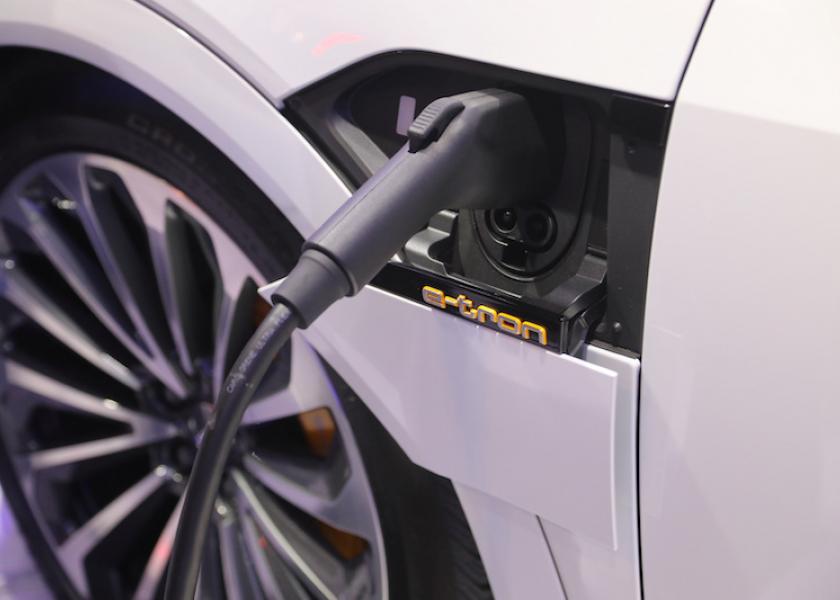What Changed Senator Manchin's Mind About $740B Reconciliation Bill?

The Congressional Budget Office says the reconciliation bill, which is being called the "Inflation Reduction Act" cuts the deficit by $102 billion. However, some legislators are pushing for changes as debate nears, including to electric-vehicle tax-credit limits and a possible carried interest loophole.
The Senate Democrats’ tax, climate and drug-pricing bill would reduce federal budget deficits by $102 billion over 10 years, the nonpartisan Congressional Budget Office (CBO) said. CBO also calculated that increasing the Internal Revenue Service budget would generate $204 billion in new revenue from cracking down on tax avoidance, something that wasn’t included in the official deficit score.
When that is factored in, the CBO analysis is in line with the $300 billion in deficit reduction claim initially made for the bill by Sen. Joe Manchin (D-W.Va.) and Senate Majority Leader Chuck Schumer (D-N.Y.).
The deficit decrease is driven in part by a repeal of a Trump administration restriction on prescription drug rebates, generating $122 billion and by allowing Medicare to negotiate the cost of high-priced drugs, which generates $102 billion. A 15% corporate minimum tax on large corporations generates $313 billion, as expected, while a narrowing of the carried interest loophole nets $13 billion in the score, slightly less than Democrats forecast.
Perspective
The Tax Foundation notes: “The $280 billion in new spending and tax subsidies Congress just authorized in the Chips and Science Act will nearly cancel out the reported $300 billion in deficit reduction that supporters say will be delivered by the Inflation Reduction Act. And this does not consider the harm that the tax increases will do to the recessionary economy.”
Senators Seek Changes to Bill
Sen. Debbie Stabenow (D-Mich.) is seeking last-minute changes to strict new electric-vehicle tax-credit limits in the deal amid pressure from the auto industry. Stabenow called the provision a “serious concern,” adding that the EV tax credit, worth billions of dollars, wouldn’t be usable for years.
Major automakers including Ford Motor Co., General Motors Co. and Toyota Motor Corp. are arguing against limits that include prohibitions on batteries and critical minerals that are processed in China and other “foreign entities of concern,” which could render the credit useless. Other limits include new caps on vehicle price and consumer income that have drawn opposition from newer automakers like Rivian Automotive LLC.
Carried Interest Loophole?
Sen. Kyrsten Sinema (D-Ariz.) is seeking changes to the tax and climate measure, Politico reports, citing multiple people familiar with the matter. Sinema wants to remove the carried interest loophole provision and would like to add about $5 billion in drought resiliency, Politico reports.
Changing the tax provisions risks irking Sen. Joe Manchin (D-W.Va.), who negotiated the legislation with Majority Leader Chuck Schumer (D-N.Y.). Manchin has said he is “adamant” that the carried interest change remain in the bill.
A Way to Make the Corporate Minimum Tax Less Costly to Businesses?
One way to make the corporate minimum tax less costly to businesses is to let companies still claim depreciation tax breaks for their investments in equipment and facilities. The levy as currently drafted doesn’t allow businesses to claim those benefits.
What Changed Manchin's Mind?
Senate meets today on a resolution to rescind the Biden administration’s changes to the nation’s environmental permitting rules under the National Environmental Policy Act (NEPA). This is a big deal to getting more energy and resources faster.
When Sen. Manchin announced his support for the reconciliation package, he received a “commitment” from Democratic leaders to advance permitting reforms for infrastructure projects by the end of September. While Manchin has yet to release any details further than a framework, a change to environmental permitting rules, which are currently being discussed through SJRes 55, would offer an immediate path for improving review processes.
SJRes 55 is a Congressional Review Act (CRA) resolution sponsored by Sen. Dan Sullivan (R-Alaska) that disapproves of the Council on Environmental Quality’s (CEQ) final rule to update implementing regulations under NEPA. If Congress passes the CRA resolution and the president signs it, the CEQ rule would be overturned.
A 2018 review by CEQ found that from 2010 through 2017, it took federal agencies an average of 4.5 years to complete an environmental impact statement (EIS). In a separate analysis, CEQ found that final EISs published between 2013 and 2018 averaged 661 pages.
What's Currently in the Reconciliation Bill?
- The provisions would invest $369.75 billion in Energy Security and Climate Change programs over 10 years.
- Proponents said the package would cut about 40% of the country's carbon emissions by 2030.
- Package would raise a total of $739 billion in revenue through programs including a 15% corporate minimum tax, prescription drug pricing reform and IRS tax enforcement. The bill would impose a 15% corporate minimum tax, while raising taxes on carried interest, and raising another $124 billion through IRS tax enforcement. Families making less than $400,000 per year would not be affected. Democrats say it would reduce the deficit by $300 billion.
- Besides climate spending, the bill will also spend $64 billion on extending the Affordable Care Act (ObamaCare) subsidies through the 2024 election and the first term of Biden’s presidency, taking a big political headache off the table for Democrats. Manchin said that “helps people because you just can’t throw [increases] on them during inflammatory times like this.”
- For the first time, Medicare would be empowered to negotiate drug prices, something Democrats say would raise $288 billion, and it would cap out-of-pocket costs at $2,000 for drugs.
- Manchin said the final deal does not leave out new incentives for electric vehicles, which he’d resisted in what became a major sticking point in the negotiations. Manchin said the bill gives incentives to make new car batteries in America “and not only be able to assemble them but be able to extract the minerals that we need, critical minerals, in North America.” The deal includes a methane fee as well as a $4,000 tax credit for the purchase of used electric vehicles. The bill also includes efforts to make fossil fuels cleaner, Manchin said, and to increase production to help American allies amid Russia’s invasion of Ukraine, which has limited European fuel supplies.
Includes Climate-Smart Ag and SAF Incentive Provisions
The new agreement includes ag and biofuel sector provisions including $20 billion to support climate-smart ag practices. It also includes the sustainable aviation fuel (SAF) tax credit of $1.25/gallon.







